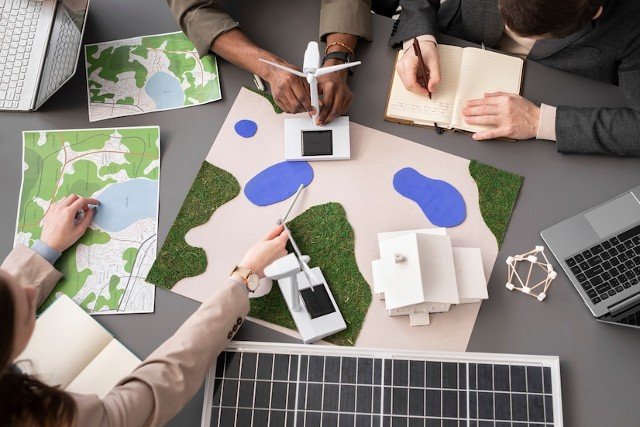Sustainable development is more than just a buzzword; it’s a necessity for ensuring a viable future for our planet. With growing environmental concerns and the increasing impact of human activities on the ecosystem, it is crucial to adopt effective strategies for sustainable development. This article explores top strategies that can help build a better tomorrow, focusing on energy efficiency, waste reduction, and the integration of renewable resources.
Understanding Sustainable Development
Sustainable development aims to meet the needs of the present without compromising the ability of future generations to meet their own needs. It involves a balanced approach to economic growth, environmental protection, and social well-being. To achieve this balance, various strategies must be deployed to minimise environmental impact while promoting economic and social advancements.
Energy Efficiency: Key to Sustainability
Enhancing energy efficiency is pivotal for sustainable development. Experts highlight its role in reducing global emissions and achieving climate targets. By optimising electrical devices and equipment, significant energy savings can be realised.
Implementing Smart Energy Management Systems
Deploying smart energy management systems (EMS) is critical for optimising energy use in buildings and industries. These systems enable real-time monitoring and control, allowing adjustments to minimise waste and enhance efficiency. For instance, EMS can automate lighting and HVAC systems based on occupancy levels, leading to substantial energy conservation.
Upgrading to Energy-Efficient Appliances
Incorporating energy-efficient appliances is another effective strategy to reduce energy consumption. Modern appliances offer improved performance with lower energy usage, resulting in reduced operating costs and environmental impact. Pairing these upgrades with double glazing windows Ingleby Barwick or in other locations, can further enhance your home’s overall efficiency by improving insulation and maintaining a consistent indoor temperature throughout the year.
Waste Reduction: Mitigating Environmental Impact
Reducing waste is essential for sustainable development. Effective strategies are necessary to minimise waste generation and promote recycling and reuse practices, thereby conserving resources and reducing landfill waste.
Adopting Circular Economy Principles
The circular economy focuses on minimising waste by maximising product and material life cycle. Businesses adopting circular economy principles can lower costs, minimise waste generation, and establish resilient supply chains through innovative product design and resource efficiency.
Implementing Comprehensive Recycling Programs
Establishing comprehensive recycling programs is crucial for diverting waste from landfills and fostering sustainable waste management practices. These programs encompass the collection, sorting, and processing of recyclable materials, supported by public education initiatives to enhance participation and effectiveness.
Harnessing Renewable Resources
Incorporating renewable resources into energy strategies is essential for reducing dependency on fossil fuels and mitigating climate change. Solar, wind, and hydropower offer abundant sources of clean energy, contributing to a sustainable energy mix.
- Investing in Solar Energy
Solar energy emerges as a promising renewable energy source. Installing solar panels and integrating solar power into the grid can effectively harness this abundant resource for sustainable energy production.
- Utilising Wind Power
Wind power plays a crucial role in sustainable energy initiatives. Wind turbines generate electricity without greenhouse gas emissions, providing a clean alternative to fossil fuels. Investing in wind power infrastructure can significantly advance sustainable energy goals.
Partnering with Reputable Energy Providers
To fully realise the benefits of these strategies for sustainable development, partnering with reputable energy brands is essential. These companies offer high-quality electrical instruments, devices, and equipment, as well as expert guidance on implementing energy-efficient and sustainable practices. By working with trusted partners, you can ensure that your sustainability efforts are effective and aligned with the latest technological advancements.
Striving for Sustainable Development
Building a sustainable future necessitates integrated strategies for energy efficiency, waste reduction, and renewable energy adoption. By embracing smart energy management, circular economy principles, and renewable resources, we can foster a sustainable environment for future generations.
Partnering with reputable energy providers enhances these efforts, providing essential tools and knowledge to achieve sustainable development goals. Embrace these strategies today to contribute to a sustainable and prosperous future.
Sources




